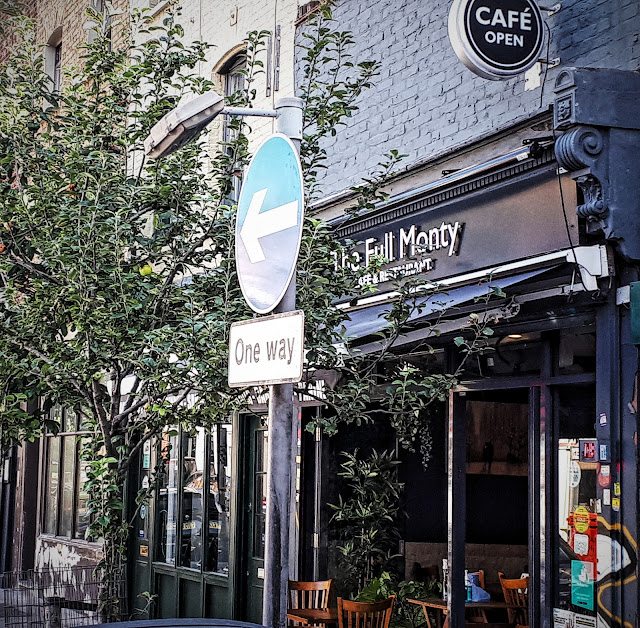A culinary wonder in London’s East End
It’d been a while since I’d gone on one of my long
cycling jaunts around London. This time around, with the temperature reaching
the late 20s (really, September? I thought you were supposed to usher in
autumn), I decided to tour the Magnificent Seven. These are seven,
Victorian-era cemeteries built on the outskirts of the capital to ease the overcrowding
of the existing burial grounds at the time.
I knew I was looking at a 30-mile-plus journey, so
stocking up on good, belly-filling food was essential. My first stop was at one
of my favourite cafes in London, The Full Monty.
One of the elements The Full Monty (formerly
known as The Workers’ Café) has in its favour is its location. It
sits far enough from the overpriced restaurants and eateries in Shoreditch,
Hackney and Hoxton. Yet, it’s not off the beaten track completely. Situated on
Globe Road, it is right next door to the London Buddhist Centre. East End
legend, Ray Winstone was born in nearby Plaistow. West Ham United Football
Club’s London Stadium is roughly ten to fifteen minutes away on two-wheels.
I was feeling hungry. The ride from Abney Park
(where I’d started my seven-cemetery tour) had worked up an appetite in me. I’d
have usually gone for the full English, but this time I opted for the full
veggie instead. I wasn’t disappointed.
A generous portion of mushrooms, with fried eggs and tomatoes, two hash browns, one vegetarian sausage and two pieces of toast was all I needed to refuel. I belong to the “really well done” brigade, so I chastised myself for not telling the lovely and smiling staff to cook my egg well. Still, it was nice.
Having lived in London for close to 24 years now,
I’m always on the lookout for local characters. I’ve never been afraid to
strike up conversations with complete strangers, especially when these
interactions help me understand an area’s culture better. On this occasion a man
turned up dressed in a suit, waistcoat, shirt and tie. He also wore smart
shoes. Despite the already-rising temperature, this gentleman seemed at ease
with his choice of wardrobe. The way he just strolled into the café, sat at a
table and shot a cursory glance at the menu, told me he was a regular. Later
on, as I was unlocking my bicycle and getting ready to go, I noticed that he,
too, was a cyclist. His frame was parked next to mine. Although we did exchange
a few pleasantries (he was having a smoke outside), only when I was riding
towards Tower Bridge later on, it occurred to me that I could have stayed
behind a while longer and found out a bit about his life.
The total bill at The Full Monty came at £6.50. A snip when you have similar establishments just a mile and a half away, on Cambridge Heath Road that will charge three or four quid more for a similar meal. Although I didn’t have any beverage this time, I’d strongly recommend the mocha here. I’ve had it before and it’s the way I like my mochas: strong (double shot of espresso) and milky. I’ll certainly come back to The Full Monty again. And this time, if Mr Dapper-Man-on-a-Bicycle happens to be there as well, I’ll have my phone ready. There are some stories that need to be recorded and told.






